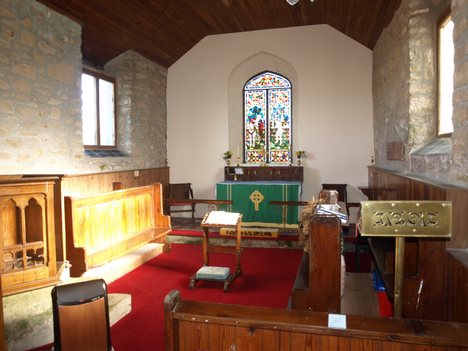
- Order:
- Duration: 4:03
- Published: 2007-07-26
- Uploaded: 2011-01-16
- Author: outback666
these configurations will be saved for each time you visit this page using this browser
Pope Martin V (c. 1368 – February 20, 1431), born Odo (or Oddone) Colonna, was Pope from 1417 to 1431. His election effectively ended the Western Schism (1378–1417).
He became apostolic protonotary under Pope Urban VI (1378–89), was created Cardinal Deacon by Pope Innocent VII (1404–06), and in 1410 was the delegate of antipope Alexander V (1409–10) to hear an appeal which had been taken to the Papacy by Jan Hus. In 1390, he was elected bishop of Urbino, but resigned in 1409 before receiving episcopal consecration. He also served as archpriest of the Lateran Basilica from 1412.
He was elected pope on St. Martin's Day (November 11), 1417, at the Council of Constance by a conclave consisting of twenty-three cardinals and thirty delegates of the council, which, after deposing antipope John XXIII (1410–15), had long been divided by the conflicting discourses of Pope Gregory XII (1406–15) and antipope Benedict XIII (1394–1423).
Martin V was widely esteemed for his moderation, learning, uprightness, and business ability, but he is not viewed as a reforming Pope. His first act after his election was to publish a brief that confirmed all the regulations made by his predecessors regarding the papal chancery, regulations which had long been the subject of complaints. When the "nations" of the council pressed their plans for reform, Martin V submitted a counter-scheme and ultimately entered into negotiations for separate concordats, for the most part vague and illusory, with the Holy Roman Empire, England, and France.
By issuing the Papal Bull to exterminate Hussites, Wycliffites, and other heretics in Bohemia on March 1, 1420, Martin V initiated the Hussite Wars.
He left Constance at the close of the council (May 1418), but travelled slowly through Italy, lingered at Florence, and did not venture to enter Rome until September 1420, when his first task was to seek to restore it to the prosperity and order to which it had become a stranger.
In that period, in 1418, a famous synod, convoked by the Jews in Forlì, sent a deputation with costly gifts to the new pope, Martin V, asking that he abolish the oppressive laws promulgated by antipope Benedict XIII and that he grant the Jews those privileges which had been accorded them under previous popes. The deputation succeeded in its mission.
Canon law prohibited interest upon a loan. To avoid this, annuities were paid, interest in effect but not in name. The dispute as to the legality of annuity contracts was brought before Martin V in 1423. He held that purchased annuities, which were redeemable at the option of the seller, were lawful. When the lawfulness of annuities was established, they were widely used in commerce; it seems that city states used them to raise compulsory loans from their citizens.
In accordance with the decree of Constance, confirmed by himself, ordering that councils should be held every five years, in 1423 Martin V summoned the council which met at Pavia and afterwards at Siena (the Council of Siena)—it was rather poorly attended, which gave the pope a pretext for dissolving it as soon as it had come to the resolution that "internal church union by reform ought to take precedence over external union". It was prorogued for seven years, and then met at Basel (the Council of Basel); shortly after its opening Martin V died of apoplexy. He is buried in the confession of St. John Lateran's, the Pope's cathedral, in Rome.
Category:Popes Category:Italian popes Category:University of Perugia alumni Category:Cardinal-bishops of Palestrina Category:15th-century Roman Catholic bishops Category:15th-century Italian people Martin 5 Martin 5 Martin 5 Martin 5 Martin 5 Martin 5 Category:Deaths from stroke Category:Renaissance Papacy
This text is licensed under the Creative Commons CC-BY-SA License. This text was originally published on Wikipedia and was developed by the Wikipedia community.






























































